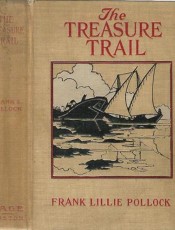we have yet to find our greater selves. we have also yet to realize that europe, since the spanish war, has counted us in the concert of great nations far more than we have counted ourselves.
somebody wrote in the new york sun:
we are not english, german, swede,
or austrian, russian, french or pole;
but we have made a separate breed
and gained a separate soul.
it sounds well; it means nothing; its sum total is zero. america asserts the brotherhood of man and then talks about a separate soul!
to speak of the old world and the new world is to speak in a dead language. the world is one. all humanity is in the same boat. the passengers multiply, but the boat remains the same size. and people who rock the boat must be stopped by force. america can no more separate itself from the destiny of europe than it can escape the natural laws of the universe.
because we declared political independence, does any one still harbor the delusion that we are independent of the acts and fortunes of monarchs? if so, let him consider only these four events: in 1492 a spanish queen financed a sailor named columbus—and europe reached out and laid a hand on this hemisphere. in 1685 a french king revoked an edict—and thousands of huguenots enriched our stock. in 1803 a french consul, to spite britain, sold us some land—it was pretty much everything west of the mississippi. one might well have supposed we were independent of the heir of austria. in 1914 they killed him, and europe fell to pieces—and that fall is shaking our ship of state from stem to stern. there may be some citizens down in the hold who do not know it—among a hundred million people you cannot expect to have no imbeciles.
thus, from palos, in 1492, to sarajevo, in 1914, the hand of europe has drawn us ever and ever closer.
yes, indeed; we are all in the same boat. europe has never forgotten some words spoken here once: "that government of the people, by the people, for the people, shall not perish from the earth." she waited to hear us repeat that in some form when the hague conventions we signed were torn to scraps of paper. perhaps nothing save calamity will teach us what europe is thankful to have learned again—that some things are worse than war, and that you can pay too high a price for peace; but that you cannot pay too high for the finding and keeping of your own soul.
该作者其它作品
《the dragon of wantley》
